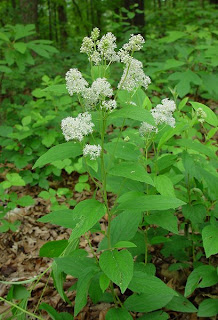COFFEE

Latin Name: Coffea arabica
Alternate Names: Arabian Coffee, Devil's Brew, Java, Espresso
Family: RUBIACEAE
Parts Used: Roasted kernel of ripe dried seeds.
Properties: Antiemetic, Antinarcotic, Appetite Suppressant, Cardiac Stimulant, Cerebral Stimulant, Diuretic, Laxative, Muscle Relaxant, Stimulant, Vasoconstrictor.
Internal Uses: Asthma, Catarrh, Constipation, Fatigue, Jet Lag, Migraine, Narcotic Poisoning, Obesity, Pain, Paralysis
Internal Applications: Tea made from beans.
In addition to being a stimulant, coffee is used in medicines to potentiate the effects of other substances and promote a sense of well being. It also helps to increase the pain-relieving actions of analgesics. It opens the bronchial passages, thus improving respiratory congestion. Coffee increases the number of calories burned per hour.
In addition to being a stimulant, coffee is used in medicines to potentiate the effects of other substances and promote a sense of well being. It also helps to increase the pain-relieving actions of analgesics. It opens the bronchial passages, thus improving respiratory congestion. Coffee increases the number of calories burned per hour.
Topical Applications: Organic coffee is used in enemas to stimulate liver and bowel cleansing.
Culinary uses: It is used to flavor baked goods, candy, ice cream, yoghurt and liqueurs.
Energetics: Bitter.
Chemical Constituents: Caffeine, theobromine, theophylline, trigonelline, chlorogenic acid, essential oils, tannins.
Contraindications: Avoid for those with acid indigestion, high blood pressure, diarrhea, high stomach acidity, ulcers, and heart palpitations. Can cause anxiety, insomnia and a jittery feeling. May be addictive. When giving up coffee, do so gradually to help prevent headaches and withdrawal symptoms such as depression, lethargy and irritation. Coffee stimulates and irritates the intestines, adrenals, and reproductive organs. It also depletes the body of B vitamins, C and iron. Do not use during pregnancy and nursing. It is not for people who are weak and deficient. Coffee often contains residues of chemicals banned in the United States.
Coffee has been linked to cancer of the bladder, breast, ovaries, pancreas and prostate, as well as heart disease and birth defects. Breast cysts, premenstrual difficulties and infertility can also be aggravated by consumption of caffeine.
Coffee has been linked to cancer of the bladder, breast, ovaries, pancreas and prostate, as well as heart disease and birth defects. Breast cysts, premenstrual difficulties and infertility can also be aggravated by consumption of caffeine.
Comments: The practice of drinking coffee began about 1,000 years ago in the region that is now known as Ethiopia when an Arab mullah encountered a goatherd, who had a flock of frolicking goats. When questioned about their excited behavior, the goatherd pointed out the bush they had been grazing upon. When the mullah tried some of the beans, he too felt excited. Originally, coffee was used by Arab priests to help them stay awake and pray at night.
In the 19th century, eclectic physicians recommended Coffee to treat alcohol and opium overdose.
The common name Coffee includes the species Coffea robusta and Coffea liberica, which are used interchangeably with Coffea arabica.
In the 19th century, eclectic physicians recommended Coffee to treat alcohol and opium overdose.
The common name Coffee includes the species Coffea robusta and Coffea liberica, which are used interchangeably with Coffea arabica.

